Title of the work
Studio / Production Company
Country of the First Edition
Country/countries of popularity
Original Language
First Edition Date
First Edition Details
We are looking for humans – real humans! Socrates and Diogenes in Munich. Directed by Christof Wolf, Script by Godehard Brüntup. Munich: Loyola Productions Munich GmbH, 2014.
Running time
Format
Available Onllne
Free at onlinefilm.org (accessed: December 17, 2021).
Free at the company’s YouTube channel Loyola Productions Munich – Visualizing Minds (accessed: December 17, 2021).
Genre
Animated films
Computer animation films
Short films
Target Audience
Young adults
Cover
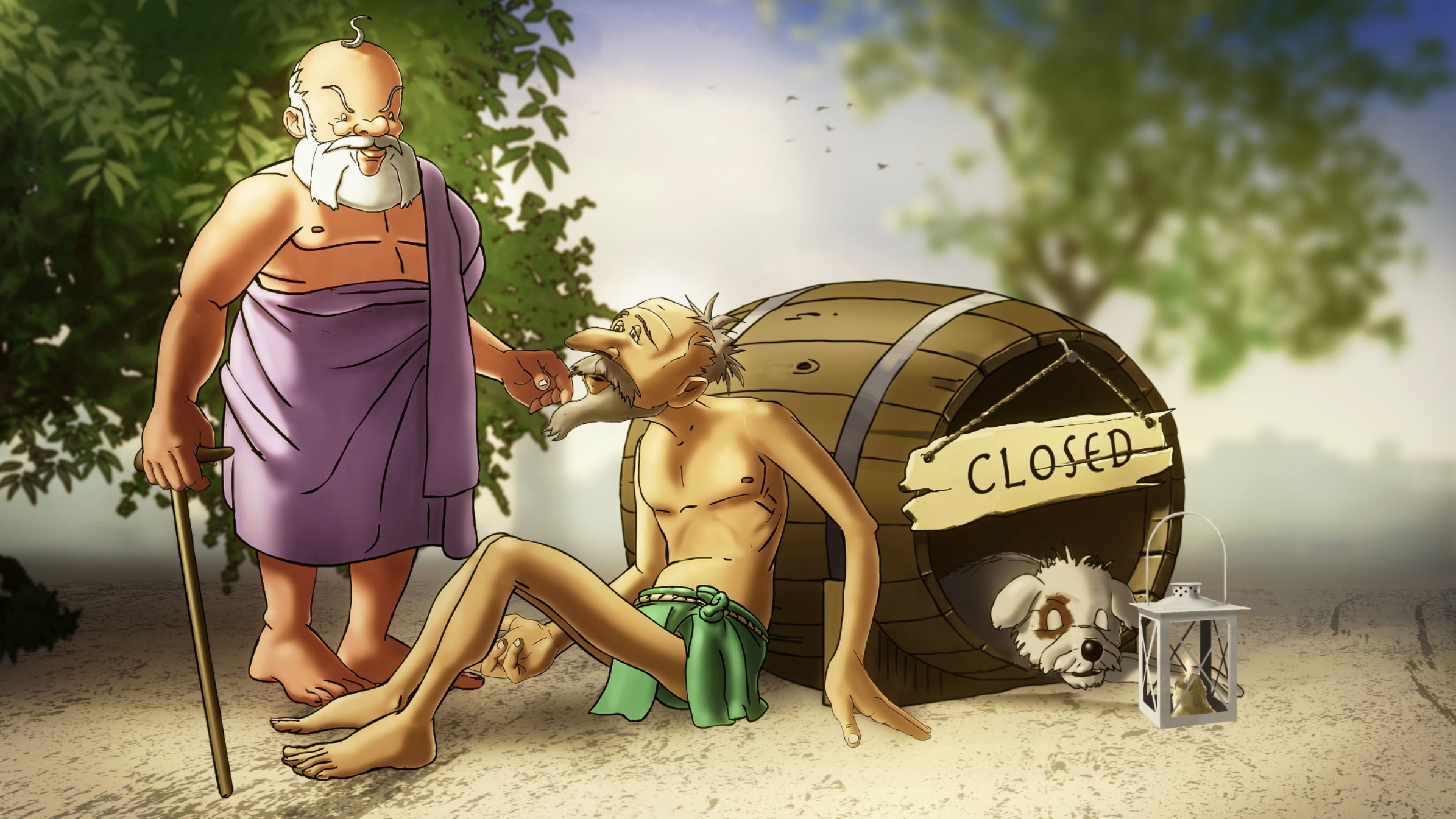
Frame from the animation (0:43), courtesy of Christof Wolf.
Author of the Entry:
Angelina Gerus, University of Warsaw, angelina.gerus@gmail.com
Peer-reviewer of the Entry:
Katarzyna Marciniak, University of Warsaw, kamar@al.uw.edu.pl
Elżbieta Olechowska, University of Warsaw, elzbieta.olechowska@gmail.com
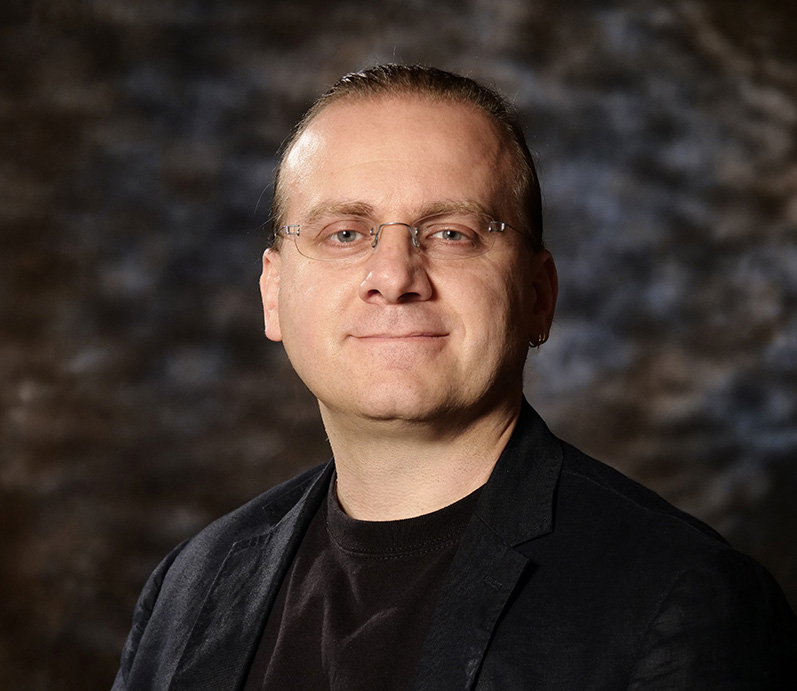
Courtesy of Christof Wolf.
Christof Wolf
, b. 1970
(Director, Producer)
Christof Wolf SJ was born in 1970, in Chemnitz. In 1993, he joined the Society of Jesus. After obtaining a BA degree in philosophy (Munich School of Philosophy 1997) and dramaturgy (Leipzig University of Music and Theatre 1998), he graduated with an MA in dramaturgy at the Leipzig University of Music and Theatre in 2000. Finally, he obtained a BA in Theology for Ministry at the University of London in 2004 and was ordained to the priesthood in Berlin. Since 2001, he has been a faculty member at the Munich School of Philosophy. Since 2006, he has been the CEO and president of Loyola Productions Munich GmbH. Since 2010, he has been the CEO and executive producer of the Munich-based company DOK TV & Media GmbH. Since 2005, his particular interest in combining film and religion resulted in directing and producing, under the sponsorship of the Jesuits, and the Iñigo Film Festival, where short spiritual films of young filmmakers are shown. His filmography numbers over 25 full-length and short features. As a director, writer and actor, he is also involved in live repertory theatre.
Sources:
His full CV, list of articles and filmography can be found on the personal profile on christof-wolf.name (accessed: February 1, 2022).
academia.edu (accessed: December 17, 2021).
jesuiten.org (Accessed: December 17, 2021).
Bio prepared by Angelina Gerus, University of Warsaw, angelina.gerus@gmail.com
Casting
Voice cast:
Jo Vossenkuhl as Diogenes,
Manfred Erdmann as Socrates,
Kathrin Anna Stahl as a Female student.
Summary
One day, two philosophers, Socrates and Diogenes, the main “provocateurs” of Antiquity, find themselves together in modern Munich. With a lamp in broad daylight, they both head to look for real humans in the company of the dog Argos. Although two thousand years have passed, they become an object of mockery by citizens, just like in ancient Athens. After they reach the Munich School of Philosophy on Kaulbach Street, the philosophers meet a girl student reading Plato’s works in its courtyard. The book provides a pretext for conversation, concluding that philosophy cannot be detached from reality, whether personal or social.
Analysis
The animation can be perceived mainly as a promotional video for the Munich School of Philosophy. However, it also raises more profound and universal themes, including what it means to be human in the modern world and the relevance and role of philosophy today.
The two main characters, Diogenes and Socrates, are easily recognizable. Socrates’ face has characteristic rounded features; his beard and hairstyle are reminiscent of his ancient marble busts. In turn, Diogenes can be identified based on his attributes (the barrel – although not a pythos – and the dog sleeping inside it), or his first words Hey, old man, you’re blocking the sun! (0:24–0:27) which in the film, contrary to tradition, are not addressed to Alexander the Great, but Socrates. Nevertheless, Diogenes’ image is the same as in the past: skinny, ragged clothing, a sloppy beard and a messy hairstyle.
The first frames are not the only reference to Diogenes Laertius’ Lives of Eminent Philosophers (cf. D. L. VI.2.38). The whole plot is based on Laertius’ story of how Diogenes, with a lighted lamp in the middle of the day, was looking for a human being in the Athenian Agora (cf. D. L. VI.2.41). The modern inhabitants of Munich mock the philosopher (in this particular case, the philosophers) just like the ancient citizens of Athens. In the animation, the Cynic searches for real humans not on his own but with Socrates and the dog Argos, who willingly accompanies them on the streets of modern Munich, where, as Diogenes says, people continue to care only about the surface of life. Thus, the task to find real humans has remained relevant for over two thousand years and is pertinent to our society. In the modern world obsessed with consumption and image, such a finding seems particularly perplexing.
A girl student, whom Diogenes and Socrates meet at the Munich School of Philosophy, reads Plato. This is of particular significance since Plato, rather than his predecessors, is considered the father of modern philosophy. Hence, Socrates starts his provocation, asking the student, What is the truth? Although he does not receive a satisfactory answer, the girl says that the search for truth begins from reading the works of famous philosophers and then continues in a collective discussion. But should today’s philosophy studies be similar to classes at Plato’s Academy? Socrates recalls that philosophy, both then and today, deals with ideas and the real world. Indeed, philosophizing is not valuable in itself but its actual effects. Philosophy does not teach you how to talk but how to act, and therefore there is hope that modern people can become real human beings.
Further Reading
Foucault, Michel, The Courage of the Truth. The Government of Self and Others II. Lectures at the Collège de France, 1983–1984 [Le Courage de la vérité. Le gouvernement de soi et des autres, 1984], trans. Graham Burchell, Houndmills, Basingstoke: Palgrave Macmillan, 2011.
Laertius, Diogenes, Lives of Eminent Philosophers, R.D. Hicks, ed., Cambridge: Harvard University Press, 1972. Available online in the Perseus Digital Library (accessed: December 17, 2021).
Sloterdijk, Peter, Critique of Cynical Reason, Minneapolis: University Of Minnesota Press, 1988.
Addenda
Frames from the animation (picture courtesy of Christof Wolf):
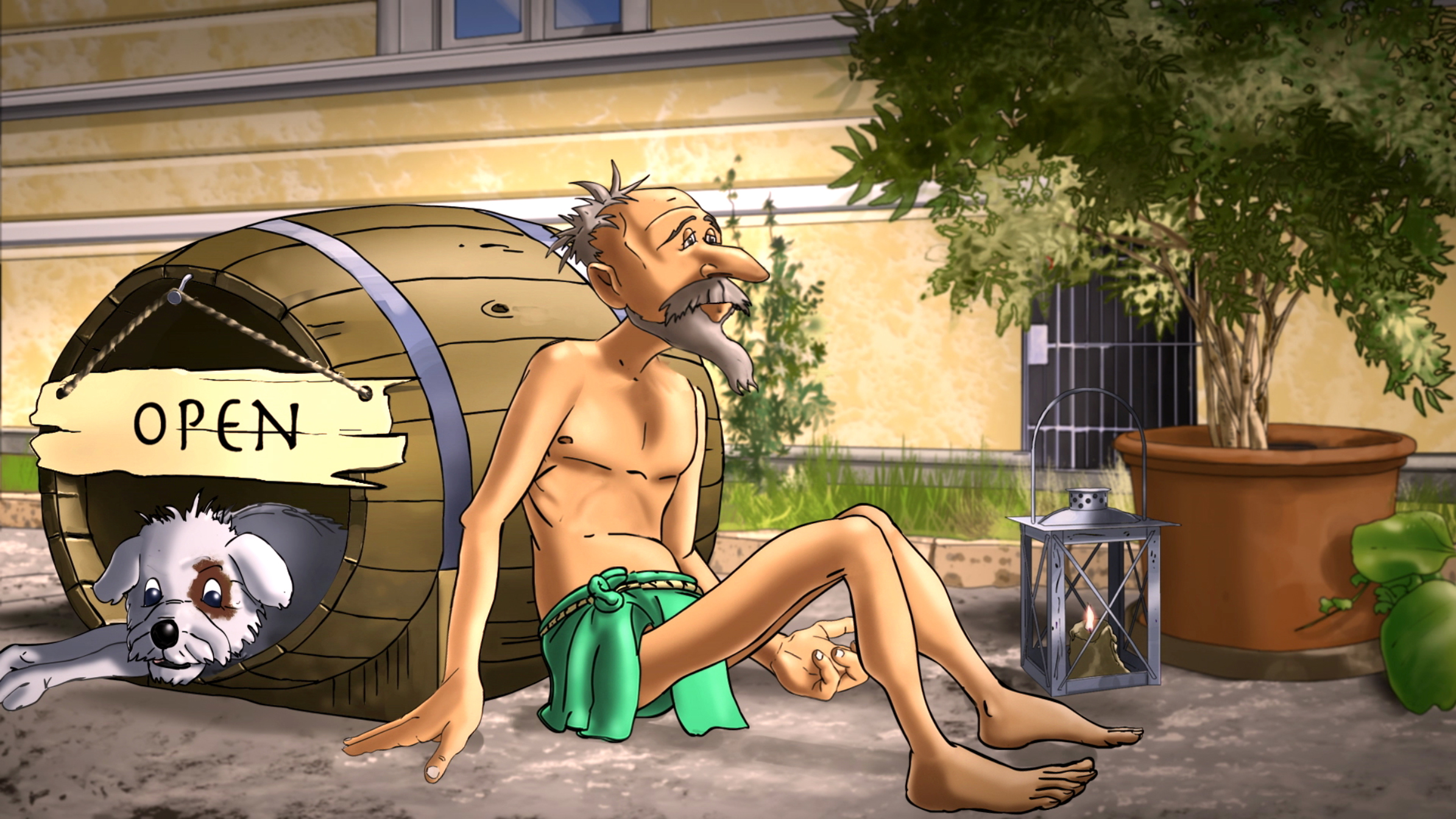
Diogenes and his dog Argos in Munich (4:25).
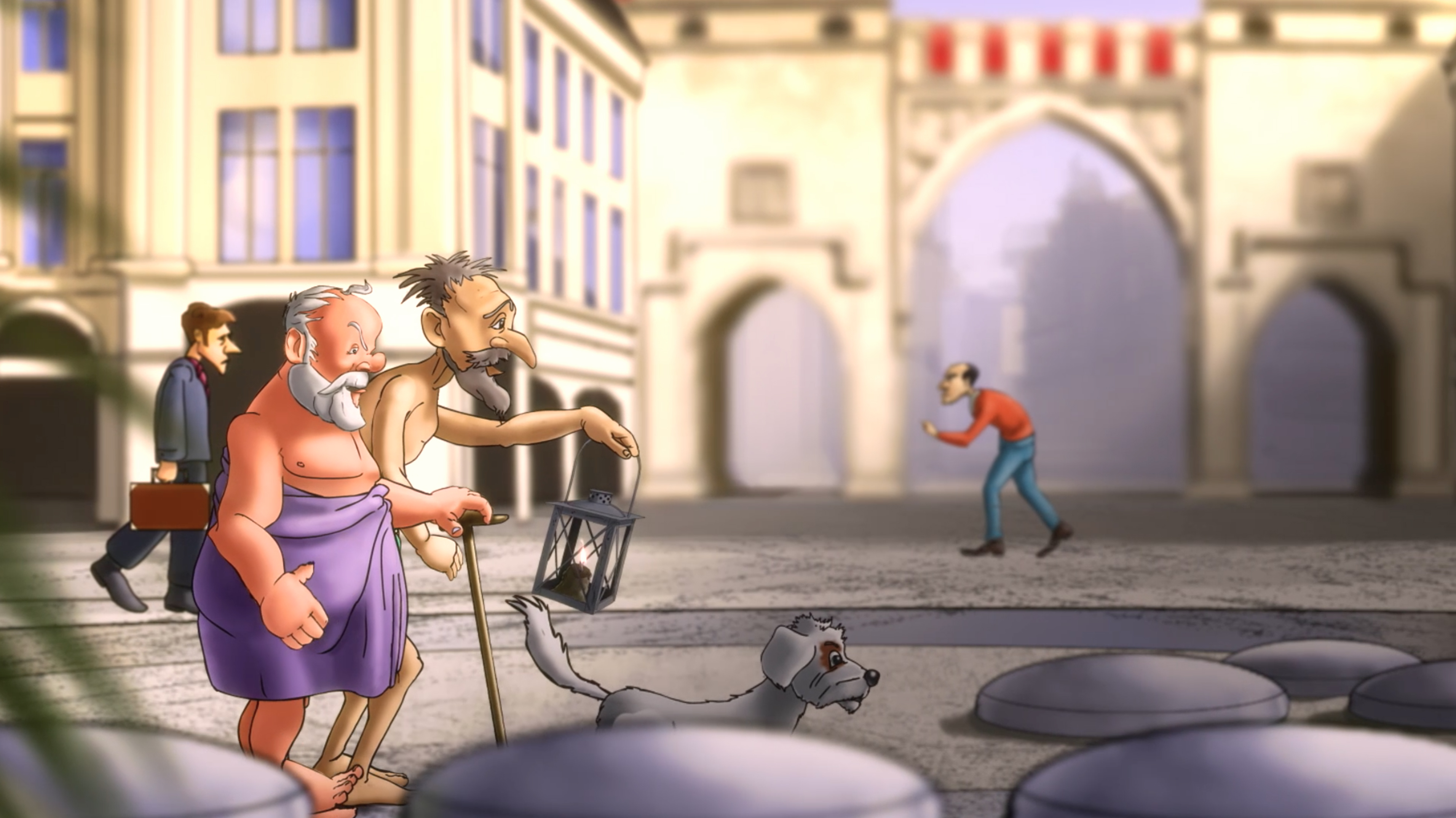
Diogenes, Socrates, and Argos are looking for real humans in Munich (1:29).
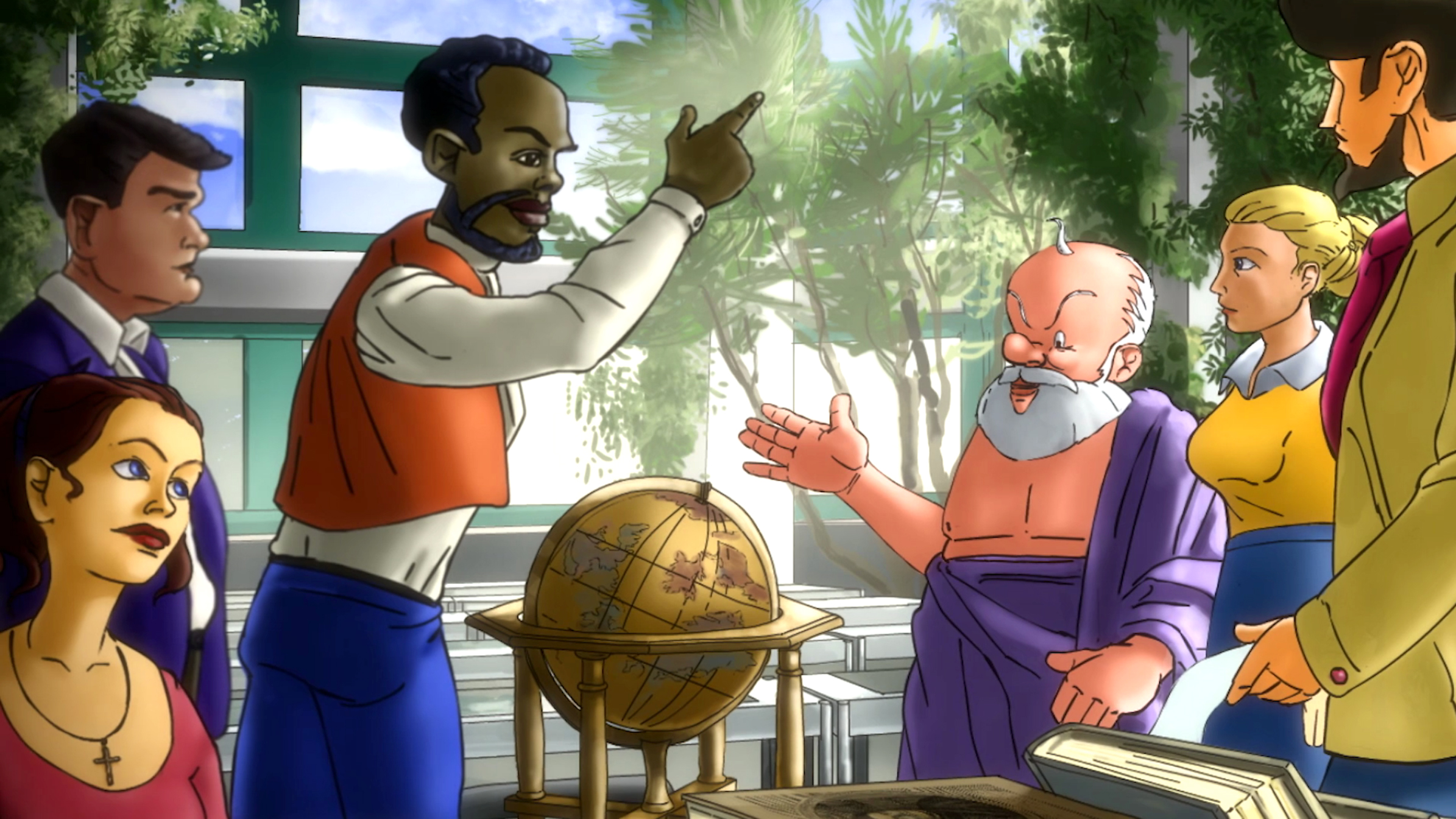
Socrates argues with students in the library of the Munich School of Philosophy (3:12).
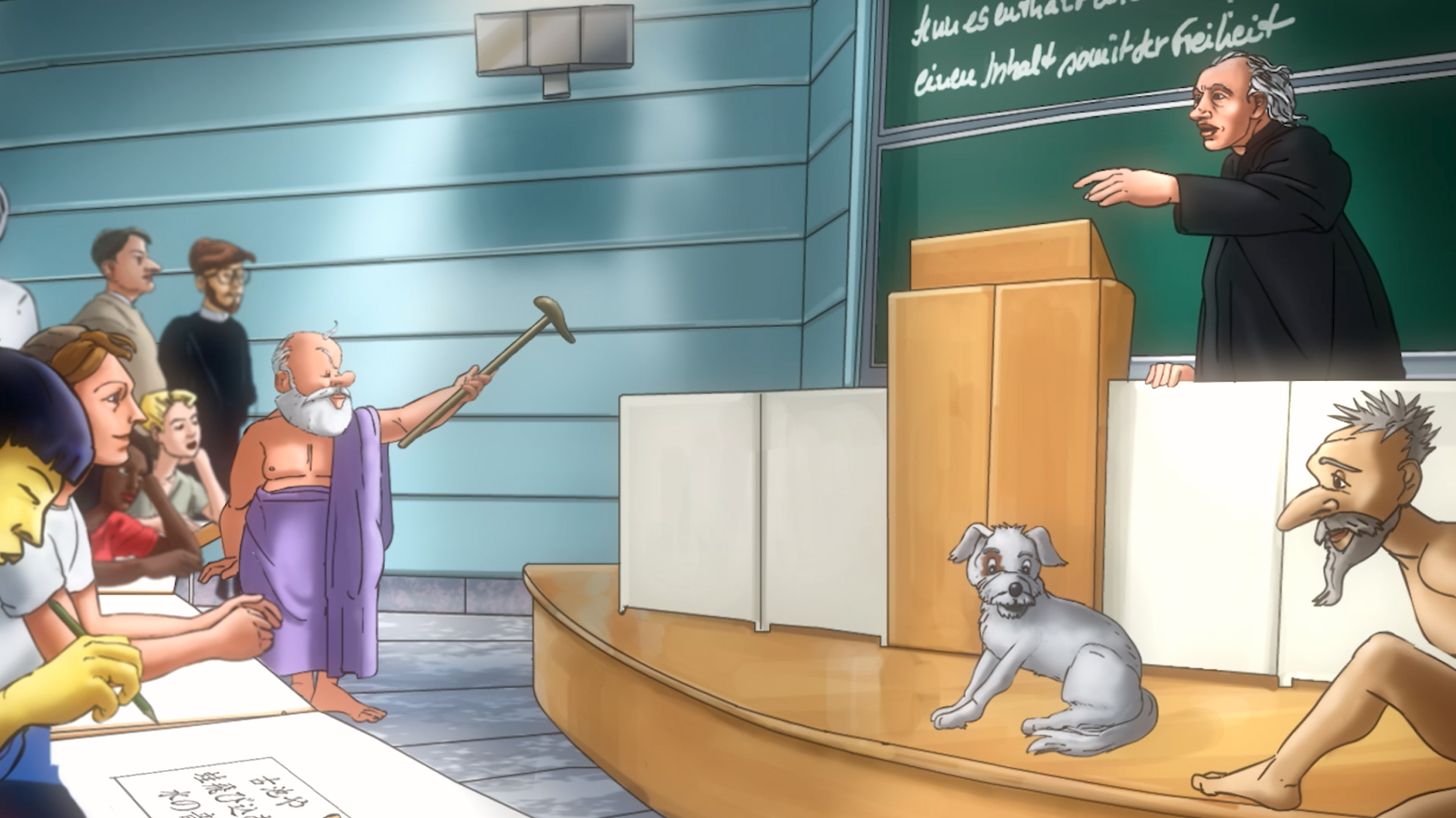
Diogenes, Socrates and Argos at the seminar (3:45).
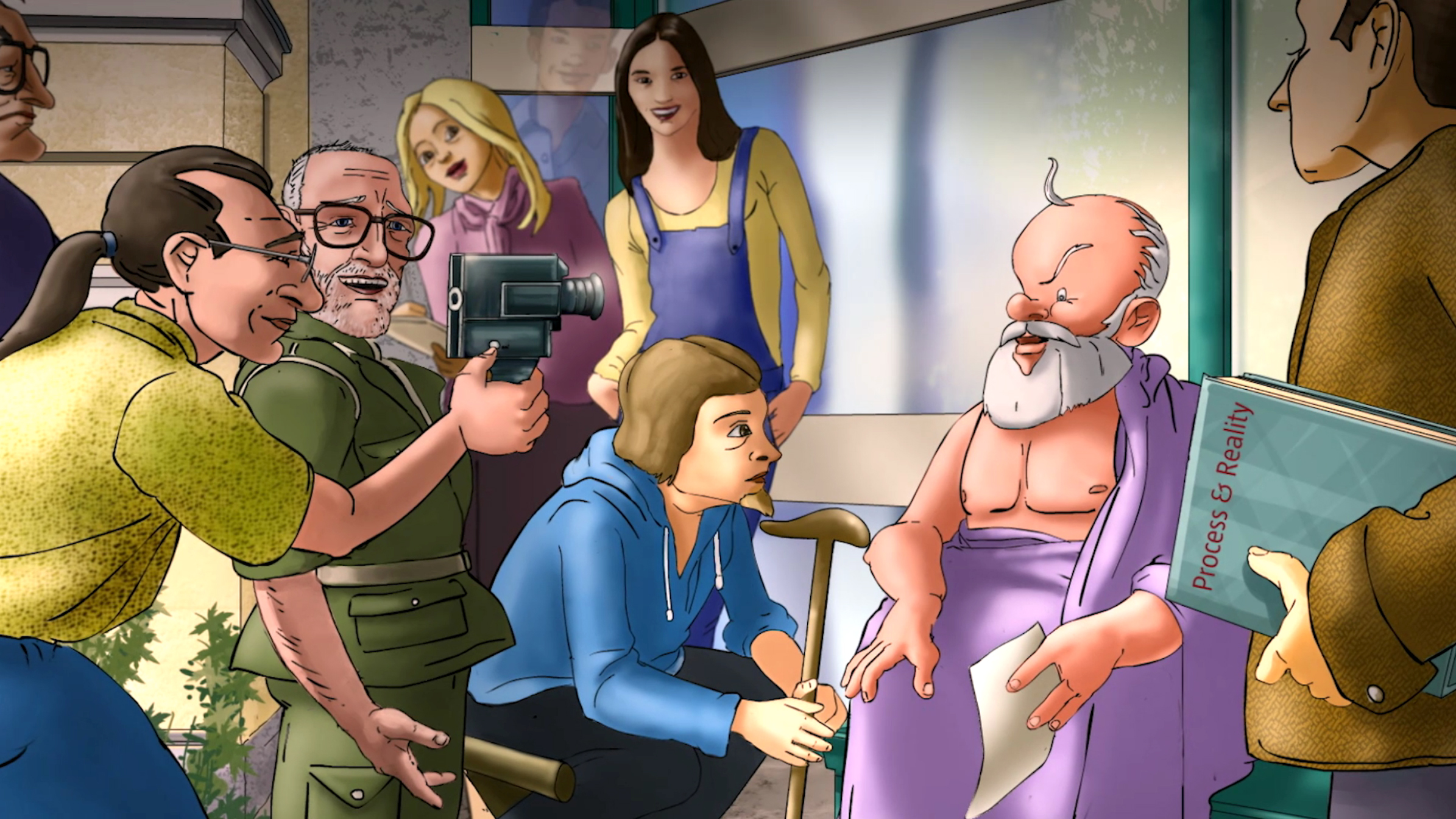
Socrates speaking about philosophy (4:07).
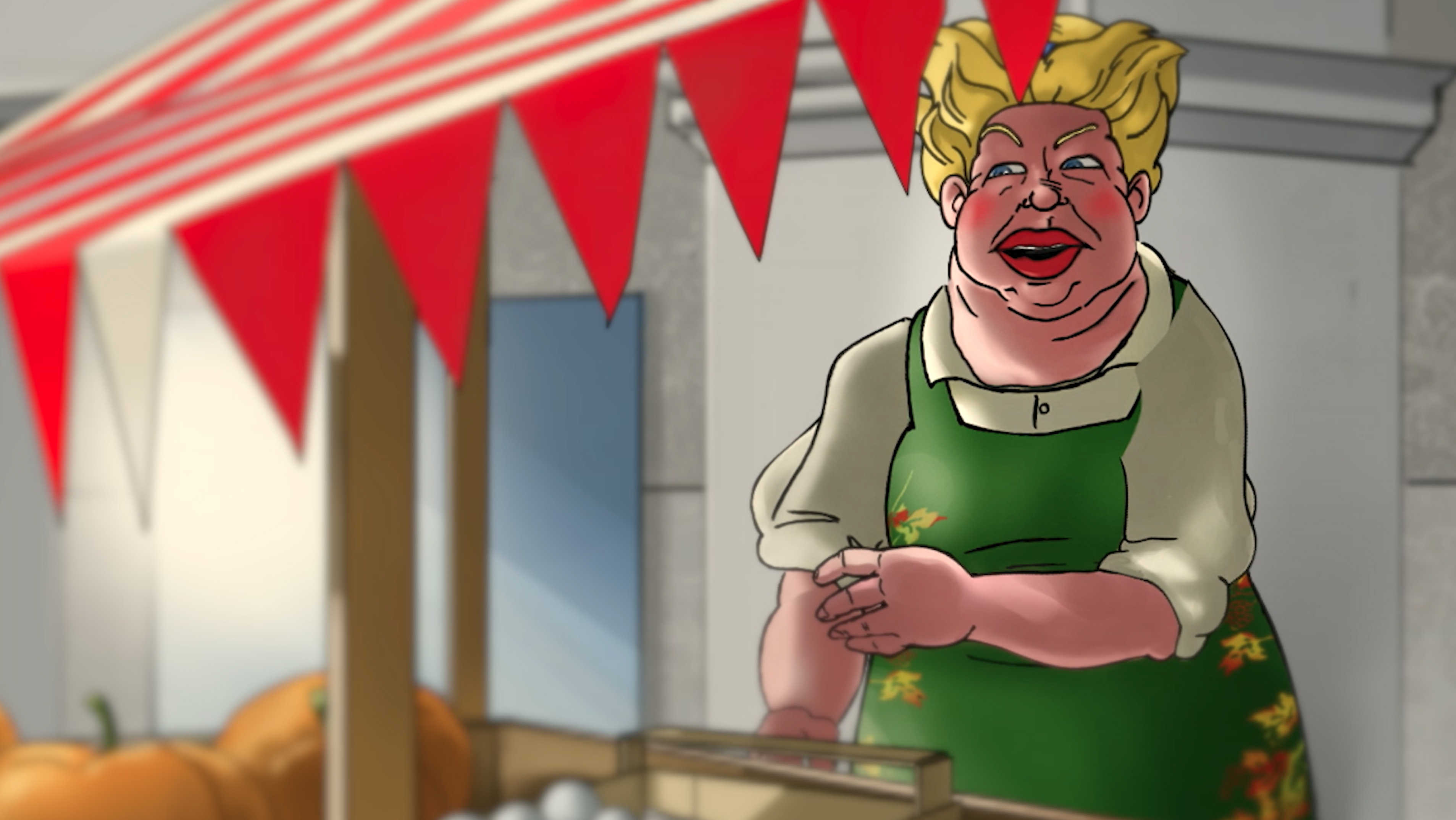
The Thracian maid*, laughing at Diogenes and Socrates (1:45).
* The story of the Thracian woman laughing at Thales, as the animation director Christof Wolf points out, symbolizes the philosophers' characteristic unworldliness. According to this anecdote, one evening the thinker tripped and fell into a well, as he was looking at the stars while walking. This was seen by a Thracian maid, who mocked him, saying: "You want to know what is in the sky; but that which is before your feet remains hidden from you" (cf. Plato, Tht. 174a4–8).


